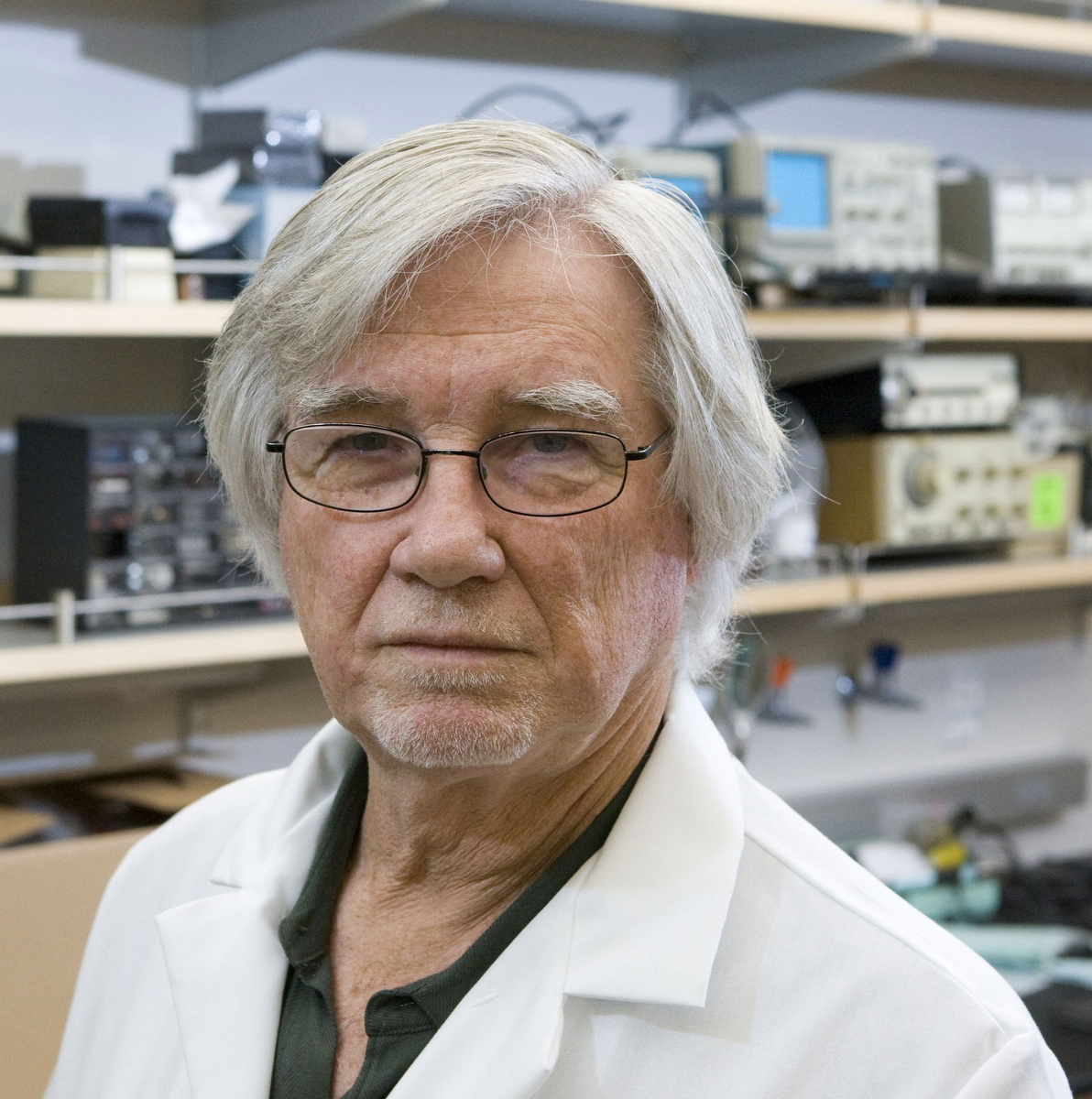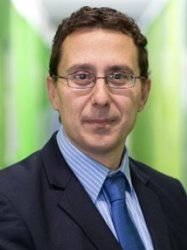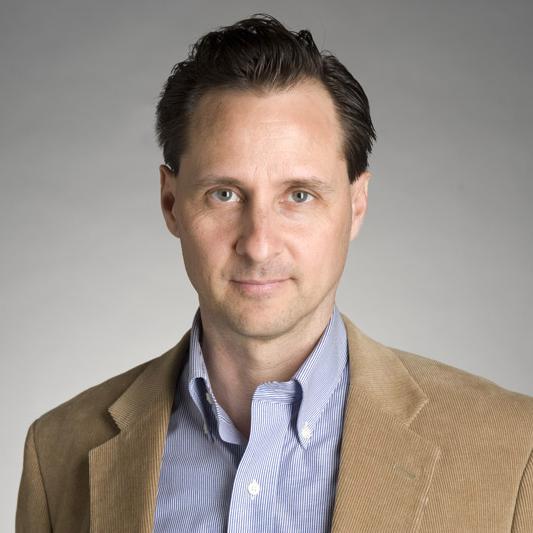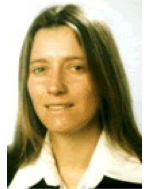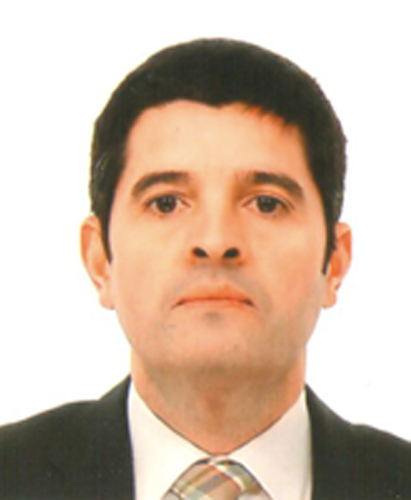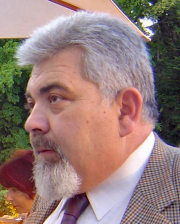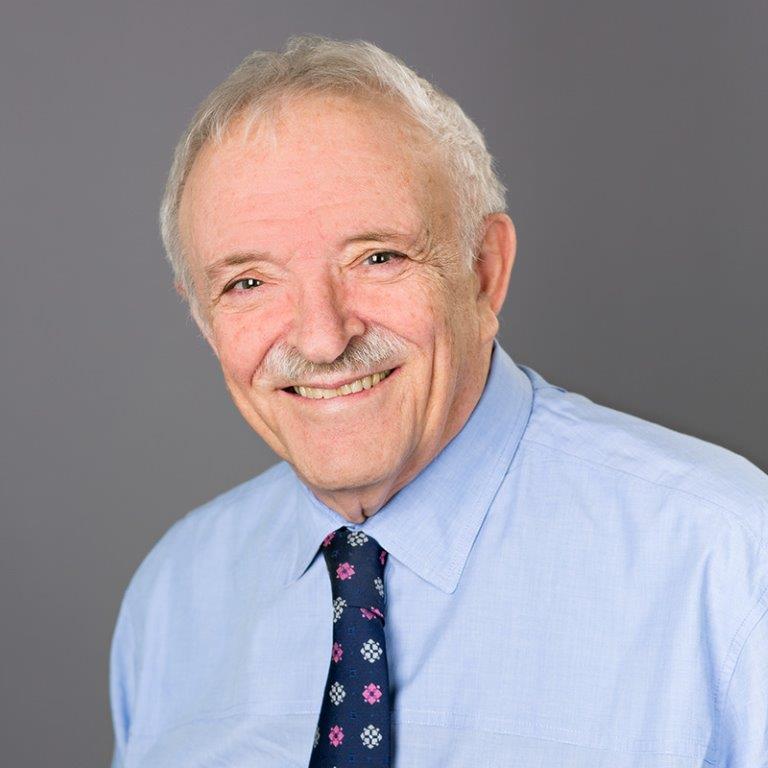Oskar C. Aszmann
Medical University of Vienna
Prof. Aszmann joined the Division of Plastic Surgery in Vienna, Austria in 1998 where he now holds the position of Associate Professor of Plastic and Reconstructive Surgery. Both his research and clinical focus have always been peripheral nerve reconstruction and extremity/hand rehabilitation. Since 2006 he has entered a close collaboration with the company Otto Bock to explore the possibilities and limits of bionic reconstruction which has now led to the establishment of a Center for Extremity Reconstruction and Rehabilitation. This Center has at its core interest the recovery and rehabilitation patients with impaired extremity function.
Reggie Edgerton
Edgerton Neuromuscular Research Laboratory. University of California
Title: Matching Robotic Assistive Devices with Basic Physiological Principles of Sensorimotor Function.
Abstract: There is an increasing capability to control the distribution of current with a wide range of complicated designs of micro arrays and patterns of stimulation parameters that can be used to apply neuromodulate the nervous system. We are developing methods to achieve a much more adaptable and highly successful modulatory methodology that can focus currents on specific population of interneuronal networks within the spinal cord that define how motor pools and thus muscles are recruited and coordinated. I will discuss technical developments which can lead to maximizing the potential of spinal networks to process complex dynamic ensembles of proprioceptive input that can facilitate significant recovery of function post paralysis.
Dr. Edgerton received his Ph.D. in Exercise Physiology from Michigan State University, Masters from University of Iowa and BS from East Carolina University. He is currently the Director of the Neuromuscular Research Laboratory and a Distinguished Professor of the Departments of Integrative Biology and Physiology, Neurobiology and Neurosurgery. He has been teaching and conducting research at UCLA for over 40 years. His research is focused on how the neural networks in the lumbar spinal cord of mammals, including humans, regain control of standing, stepping and voluntary control of fine movements after paralysis, and how can these motor functions be modified by chronically imposing activity-dependent interventions after spinal cord injury.
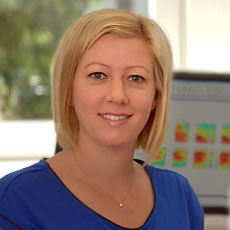
Deborah Falla
Chair in Rehabilitation Science and Physiotherapy.
Director, Centre of Precision Rehabilitation for Spinal Pain (CPR Spine).
School of Sport, Exercise and Rehabilitation Sciences. College of Life and Environmental Sciences
University of Birmingham.
Professor Falla is an expert in rehabilitation science and musculoskeletal physiotherapy. Her research utilises state of the art electrophysiological measures to evaluate the control of human movement and how it is affected or adapted in response to various states including pain, injury, fatigue and training. Her research interests also include optimising the management of musculoskeletal conditions with a particular interest in neck pain, low back pain, whiplash and headache.
Dario Farina
Imperial College of London
Professor Farina has been Full Professor at Aalborg University, Aalborg, Denmark, (until 2010) and at the University Medical Center Göttingen, Georg-August University, Germany, where he founded and directed the Institute of Neurorehabilitation Systems (2010-2016) until he moved to Imperial College London as Chair in Neurorehabilitation Engineering. His research focuses on biomedical signal processing, neurorehabilitation technology, and neural control of movement. Within these areas, he has (co)-authored approximately 400 papers in peer-reviewed Journals and >500 conference abstract and papers. He has been the President of the International Society of Electrophysiology and Kinesiology (ISEK) (2012-2014) and is currently the Editor-in-Chief of the official Journal of this Society, the Journal of Electromyography and Kinesiology. He is also currently an Editor for IEEE Transactions on Biomedical Engineering and the Journal of Physiology, and previously covered editorial roles in several other Journals.
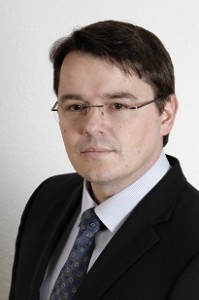
Bernhard Graimann
Leading Expert Neurotechnology,
Head of the Department of Translational Research & Knowledge Management,
Otto Bock HealthCare GmbH.
Prof. Bernhard Graimann received his PhD in Biomedical Engineering from Graz University of Technology (TU Graz) in 2002. He worked as a postdoctoral researcher at the BCI Lab, TU Graz, and at IAT, University of Bremen in bio-signal processing, pattern recognition and machine learning with applications in brain-computer communication and rehabilitation robotics. Since 2006, he has been Universitätsdozent at the Institute of Knowledge Discovery, Graz University of Technology, Austria. In 2008, he became the Scientific Coordinator for Neurotechnology at Otto Bock HealthCare GmbH, Germany. Since 2010, he has been the leading expert for neurotechnology, and since March 2014 he is also the head of the Department of Translational Research and Knowledge Management at Otto Bock.
Hugh Herr
MIT Media Lab
Hugh Herr, who heads the Biomechatronics group at the MIT Media Lab, is creating bionic limbs that emulate the function of natural limbs. In 2011, TIME magazine coined him the “Leader of the Bionic Age” because of his revolutionary work in the emerging field of biomechatronics – technology that marries human physiology with electromechanics.
Herr’s Biomechatronics group has developed gait-adaptive knee prostheses for transfemoral amputees and variable impedance ankle-foot orthoses for patients suffering from drop foot, a gait pathology caused by stroke, cerebral palsy, and multiple sclerosis. He has also designed his own bionic limbs, the world’s first bionic lower leg called the BiOM Ankle System. As published in the 2012 Proceedings of the Royal Society, the BiOM Ankle System has been clinically shown to be the first leg prosthesis to achieve biomechanical and physiological normalization, allowing persons with leg amputation to walk with normal levels of speed and metabolism as if their legs were biological once again.
Herr has received many accolades for his groundbreaking innovations, including the 13th Annual Heinz Award for Technology, the Economy and Employment; the Prince Salman Award for Disability Research; the Smithsonian American Ingenuity Award in Technology; the 14th Innovator of the Year Award; the 41st Inventor of the Year Award; and the 2016 Princess of Asturias Award for Technical & Scientific Research.
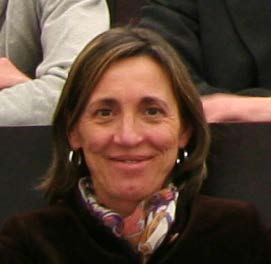
Donatella Mattia
Clinical Neurophysiology.
Neuroelectrical Imaging and BCI Lab.
Fondazione Santa Lucia, IRCCS
Dr. Donatella Mattia took her degree in Medicine at “Sapienza” University of Rome, in 1987 with summa cum laude. In 1992 took her residency in Neurology, at the Dept. of Neurological Science, “Sapienza” University of Rome, with summa cum laude. In 1997 completed her PhD in “Organization and Pathology of Movement” at the Dept. of Neurological Science, “Sapienza” University of Rome. During her PhD course she spent 4 years at the Montreal Neurological Institute and Hospital, McGill University (Montreal, QC, Canada) as visiting scientist where she investigated some of the electrophysiological mechanisms of the cortical excitability by using the intra- and extra- cellular recording performed on “in vitro” animal and human brain slice preparation. She started in 1998 her research activity at the Neurophysiology Dept. at the Fondazione Santa Lucia, IRCCS, Rome, Italy, where she is currently working as a director (since 2004) of the Laboratory of Neuroelectrical Imaging and Brain Computer Interface. Over the years, Dr. Mattia employed advanced signal processing and bioengineering techniques to investigate the basis of human planning and execution of motor actions under both physiological and pathological conditions. She promoted the development of clinical protocols for assessing the application of BCI, and the development of the BCI operated assistive device, namely a system endowed with robotic and domotic appliance controlled in reduced or absence of muscular effort. More recently, Dr. Mattia has been promoting the application of the EEGbased BCI technology in a clinical setting as rehabilitation tool, both in terms of functional substitution and functional recovery. In this specific field, she has been the principal investigator in several international and national research projects. Dr. Donatella Mattia is author of about 100 papers published on peer-reviewed journals (h-index 21 (ISI)) and of several contributions to international Conferences and Schools.
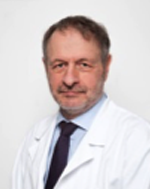
Marco Molinari
Director Neurorehabilitation 1 and Spinal Center
Director Clinical Translational Research
Head Neuro-Robot Rehabilitation Lab
IRCCS Fondazione S. Lucia
Dr. Marco Molinari (Neurologist, Physical medicine and rehabilitation specialist, PhD in Neuroscience) is the Director of Neurorehabilitation Translational Researchand Clinic at IRCCS Fondazione Santa Lucia, Rome. The Department integrates Neuroscience research and clinical neurological rehabilitation units. The clinical ward is devoted to rehabilitation of patients with brain or spinal cord lesions in a multidisciplinary environment. Research activity span from basic science approaches in animal models to development and testing of new rehab approaches in humans. Dr. Molinari is author of over 150 articles published on indexed journals. SCOPUS H-index 45. He is Review Editor of The Cerebellum. Research activity has been always focused on brain plasticity mechanisms and functional recovery both at basic science and clinical levels.
Natalie Mrachacz-Kersting
Aalborg University
Natalie Mrachacz-Kersting, Ph.D., obtained the M.Ed. degree in Human Movement Science from the University of Western Australia, Perth, Australia, in 1997, and the PhD degree in Biomedical Engineering from Aalborg University, Aalborg, Denmark in 2005. In 2005-2007 she has been a lecturer at the Department of Sport and Exercise Science, The University of Auckland, Auckland, New Zealand and in 2007-2009 an assistant professor in Motor Control at Aalborg University, Aalborg, Denmark. Since 2009 she has worked as associate professor at the Department of Health Science and Technology at Aalborg University, Aalborg, Denmark. There she is the head of two laboratories, the Motor Control Laboratory and the Neuroplasticity Laboratory. Her main research interest is focused on the role of feedback from muscle afferents in both motor control and neural plasticity.
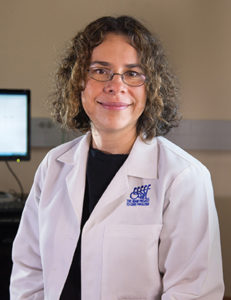
Monica Perez
Associate Professor, Department of Neurological Surgery.
The Miami Project to Cure Paralysis Lois Pope Life Center.
University of Miami.
Dr. Perez received a Ph.D. in physical therapy from University of Miami School of Medicine in 2003. She attended the University of Copenhagen as a post-doctoral fellow at the laboratory of Professor Jens B. Nielsen until 2005. She joined the National Institute of Neurological Disorders and Stroke at the NIH in 2005 as a research fellow working with Dr. Leonardo G. Cohen until 2008. Her research has focused on studying adaptations in motor cortical and spinal cord circuits during acquisition of a novel motor skill using upper and lower limb muscles. This work has been complemented by studies aiming to better understand modulation in motor cortical circuits, including intracortical and interhemispheric interactions between primary motor cortices, during voluntary movement.
Jose L. Pons
Research Professor, CSIC.
Cajal Institute
Prof. Pons obtained his PhD in Physics, Universidad Complutense Madrid, in 1997. In 1998 he was appointed as Postdoctoral Fellow at the Institute for Industrial Automation of the Spanish Council for Scientific Research, CSIC. In 1999 he was awarded a position as Tenured Scientist, in 2007 a position as Research Scientist and eventually in 2008 a position as Full Professor, all of them at the same institution.
Dejan Popovic
Professor of Biomedical Enginering, University of Belgrade, Serbia
Professor of Rehabilitation Engineering in the University of Belgrade, Serbia. Professor of Biomedical Engineering in the University of Miami. Professor of Neurological Surgery in the University of Alberta (Canada). Professor of Physiology. His scientific interests are: Control of movement, Restoration of movement in humans with disabilities, Design of medical instrumentation, and Information technology in medicine.
William Zev Rymer
Shirley Ryan AbilityLab
W. Zev Rymer, MD, PhD earned his medical degree from Melbourne University and his PhD in Neurophysiology from Monash University, both in Australia. After postdoctoral training at the National Institutes of Health and Johns Hopkins University Medical School, he became an Assistant Professor of Neurosurgery and Physiology at the State University of New York, Syracuse. In 1978, he came to Chicago as an Assistant Professor of Physiology at the Feinberg School of Medicine at Northwestern University, and he remained as a primary faculty member in Physiology until his appointment at the Rehabilitation Institute of Chicago (RIC). Dr. Rymer serves as Director of the Single Motor Laboratory, a position he has held since 1987, at the Shirley Ryan AbilityLab (formerly the RIC). He served as RIC’s Director of the Sensory Motor Performance Program from 1987-2017 as well as Director of Research Planning from 2014-2017. In addition to his research role at the Shirley Ryan AbilityLab, Dr. Rymer holds appointments as Professor of Physical Medicine and Rehabilitation, Physiology, and Biomedical Engineering at the Northwestern University Feinberg School of Medicine. His laboratory receives support from the National Institutes of Health, the Department of Education’s National Institute on Disability and Rehabilitation Research (NIDRR), and a number of research-oriented foundations. Dr. Rymer is currently researching regulation of movement in normal and neurologically disordered human subjects including sources of altered motoneuronal behavior in hemispheric stroke survivors, using electro-physiological, pharmacological, and biomechanical techniques.

Aiko K. Thompson
Associate Professor
Department of Health Sciences and Research, College of Health Professions
Medical University of South Carolina, USA
Dr. Thompson is an Associate Professor at the Medical University of South Carolina. She received her Ph.D. degree in Neuroscience from the University of Alberta, Canada in 2005. She was a post-doctoral fellow at the Wadsworth Center, USA from 2005 to 2007. Her long-term research goals are to understand plasticity of the central nervous system (CNS) as it relates to motor control, and to learn how to guide that plasticity to help restore useful function in people after CNS damage. Her current research focuses on investigating functional roles of spinal reflexes during dynamic motion and evaluating the CNS plasticity associated with changing EMG evoked responses (e.g., spinal reflexes and motor evoked potential to transcranial magnetic stimulation) in people with and without CNS damage.
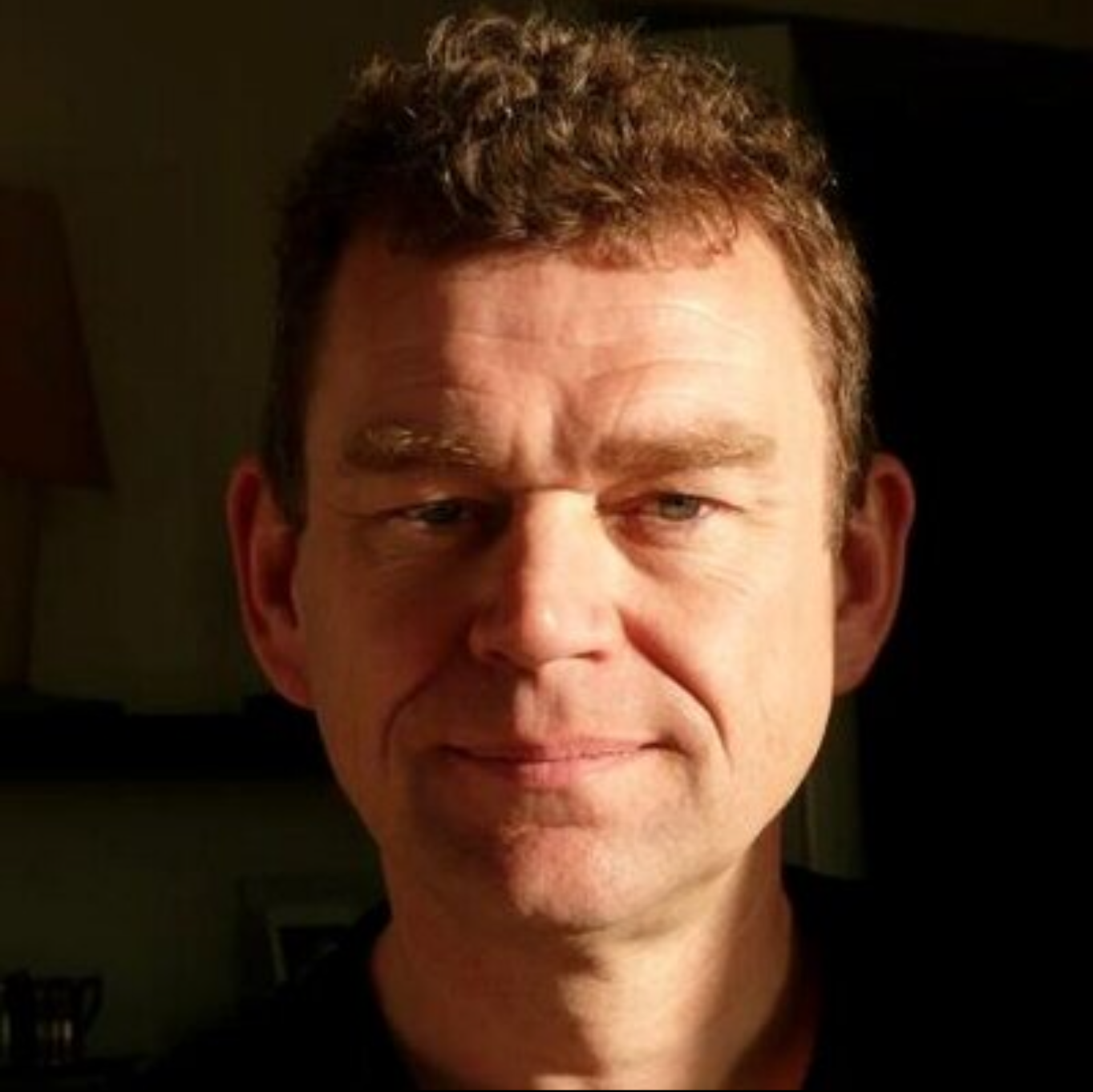
Paul Verschure
Director SPECS lab, Institute for Bioengineering of Catalunya,
Barcelona Institute of Science and Technology,
Catalan Institute of Advanced Studies (ICREA),
Founder/CEO of Eodyne Systems S.L.,
Founder/Chairman of the Future Memory Foundation.
Title: Bringing neurorehabilitation from the lab to the real world: The theory and practice behind the Rehabilitation Gaming System.
He received his MA and Ph.D. in Psychology, and Paul’s scientific aim is to find a unified theory of mind and brain using synthetic methods and to apply it to the quality of life enhancing technologies. His theory of mind and brain, Distributed Adaptive Control, has shed light on the function of a number of brain structures, used to control advanced mobile and humanoid robotic systems and has laid the foundation for a novel neurorehabilitation approach called the Rehabilitation Gaming System (Eodyne.com). Paul explores new methods for the analysis, simulation, visualization, and exploration of complex brain data to support his DAC theory and to advance clinical diagnostics and intervention in neuropathologies such as stroke and epilepsy (brainx3.com). Complementary to his science, Paul has developed and deployed over 25 art installations (http://specs.upf.edu/installations). These include the biomimetic mixed reality space Ada experienced by over half a million visitors (2002) and more recently three virtual/augmented reality educational installations and applications for the Memorial Site Bergen-Belsen (2012 – ) which is now generalized to other sites across Europe.
Paul manages a multidisciplinary team of 30 researchers (specs-lab.com) with whom he has published over 300 articles in leading journals and conferences in a range of disciplines. Paul collaborates with a wide network of international researchers. He has represented Switzerland at the Global Science Forum of the OECD, is chair of the annual Barcelona Cognition, Brain, and Technology summer school and co-chair of the annual Convergent Science Network’s conference Living Machines. Paul also hosts a podcast (csnetwork.eu/talks/podcast). He is the founder and academic director of the Interdisciplinary Master program Cognitive Systems and Interactive Media at University Pompeu Fabra in Barcelona and has completed 15 Ironman races.

Günter Edlinger
Dipl.-Ing., Dr. techn., CEO
g.tec medical engineering GmbH
g.tec medical engineering Spain SL
g.tec neurotechnology USA, Inc.
GUGER TECHNOLOGIES OG
Günter Edlinger, PhD. studied control engineering at the University of Technology Graz, Austria and carried out research work at the Graz Institute for Biomedical Engineering where he worked as an assistant professor and teacher. He is co-founder and CEO of g.tec since 1999 and responsible for R&D with special emphasis on the development and production of the biosignal sensing, acquisition and processing hardware for the g.tec medical systems.

